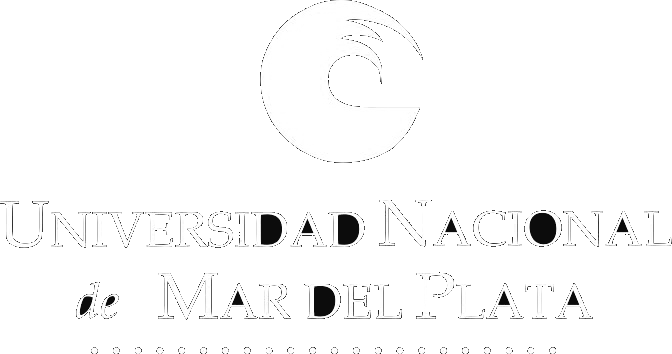EL DEVENIR MENOR EN EL LENGUAJE NEOBARROSO DE LA POÉTICA DE NÉSTOR PERLONGHER
Resumen
RESUMEN
En el presente trabajo se propone una lectura del devenir menor en el lenguaje neobarroso de la poética de Néstor Perlongher en Prosa Plebeya: ensayos 1980 – 1992. Se desarrollará la idea del devenir como posible línea de fuga de un devenir minoritario en la poesía de Perlongher. Tanto en el poema barroco como en el neobarroco, se busca una intensidad que exprese todo sin explicar nada, donde existe un salir de sí. En la poesía de Perlongher el yo poético se deshace, a través del lenguaje, hasta llegar a la pérdida de identidad de los seres marginados y silenciados en donde lo importante es salirse de los surcos planteados para que la escritura funcione como un espacio crítico de decir de la otredad –devenir travesti, homosexual, indígena, cisne, pantera, loca, etc.– El 68 implicó grandes cambios políticos donde brotaron problemas sociales y entre ellos, las minorías oprimidas alcanzaron su voz. Perlongher maneja su propio cuerpo, ‘descalificado’ o rechazado como tantos otros por la dictadura militar. El neobarroco funciona como un dispositivo del lenguaje que pone sobre la mesa una propuesta crítica al sistema político, social y cultural. El neobarroso plantea la relación entre poesía, política y memoria, logrando una escritura que causa horror de la realidad. Con esto, Perlongher dejó retazos de un pensamiento crítico que se ve reflejado en su poesía: por un lado, exhibe la estetización de lo marginal, la violación del género y los valores prestablecidos en la sociedad y por el otro, presenta su teoría exteriorizada que satiriza y nos inclina a la función comunicativa y estética de sus respectivos mensajes que tienen un objetivo político que sirve para mostrar injusticias y diferencias, y para señalar el choque entre la violencia y el deseo.
ABSTRACT
This paper proposes a reading of becoming minor in the neobarroso language of the poetics of Néstor Perlongher in Prosa Plebeya: essays 1980 – 1992. The idea of becoming will be developed as a possible line of flight of a minority becoming in Perlongher's poetry. . Both in the baroque poem and in the neo-baroque, an intensity is sought that expresses everything without explaining anything, where there is a going out of oneself. In Perlongher's poetry, the poetic self is undone, through language, until reaching the loss of identity of marginalized and silenced beings where the important thing is to get out of the grooves proposed so that writing works as a critical space to say. of otherness –becoming transvestite, homosexual, indigenous, swan, panther, crazy, etc.– 1968 implied great political changes where social problems arose and among them, the oppressed minorities reached their voice. Perlongher manages his own body, 'disqualified' or rejected like so many others by the military dictatorship. The neo-baroque works as a language device that puts on the table a critical proposal to the political, social and cultural system. The neobarroso raises the relationship between poetry, politics and memory, achieving a writing that causes horror of reality. With this, Perlongher left traces of a critical thought that is reflected in his poetry: on the one hand, he exhibits the aestheticization of the marginal, the violation of gender and the pre-established values in society and on the other, he presents his externalized theory that satirizes and inclines us to the communicative and aesthetic function of their respective messages that have a political objective that serves to show injustices and differences, and to point out the clash between violence and desire.
Palabras clave
Texto completo:
PDFReferencias
Barthes, Roland. El susurro del lenguaje. Barcelona: Paidós, 1994.
Deleuze, Gilles. Guattari, Félix. Mil Mesetas París: Les Editions de Minuit, 1980.
Deleuze, Gilles. Crítica y Clínica. Barcelona: Anagrama, 1996
Eagleton, Terry. Cómo leer un poema. Madrid: Ediciones Akal, S.A., 2007.
Eagleton, Terry. Una introducción a la teoría literaria. México: Fondo de Cultura Económica, 1998.
Ferrer, Cristian. Prosa Plebeya. Buenos Aires: Ediciones Colihue S.R.L., 1980.
Palmeiro, Cecilia. «Locas, milicos y fusiles: Néstor Perlongher y la última dictadura argentina» Estudios 19:38 Julio – Diciembre: 2008.
Perlongher, Néstor. Prosa Plebeya. Buenos Aires: Ediciones
Colihue S.R.L., 1980. Sarduy, Severo. Escrito sobre un cuerpo. Buenos Aires: Sudamericana, 1969.
Milán, Eduardo. Resistir. Insistencias sobre el presente poético. México, DF: Fondo deCultura Económica, 2004.
Echavarren, Roberto, José Kozer y Jacobo Sefamí, eds. Medusario. Muestra de poesía latinoamericana. México, DF: Fondo de Cultura Económica, 1996.
Enlaces refback
- No hay ningún enlace refback.









